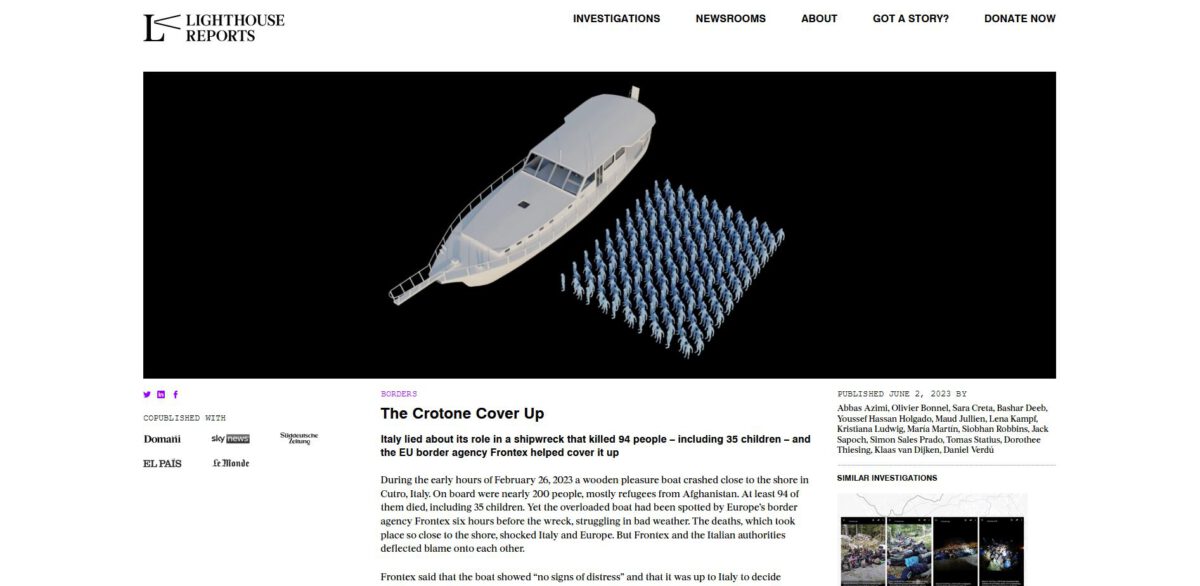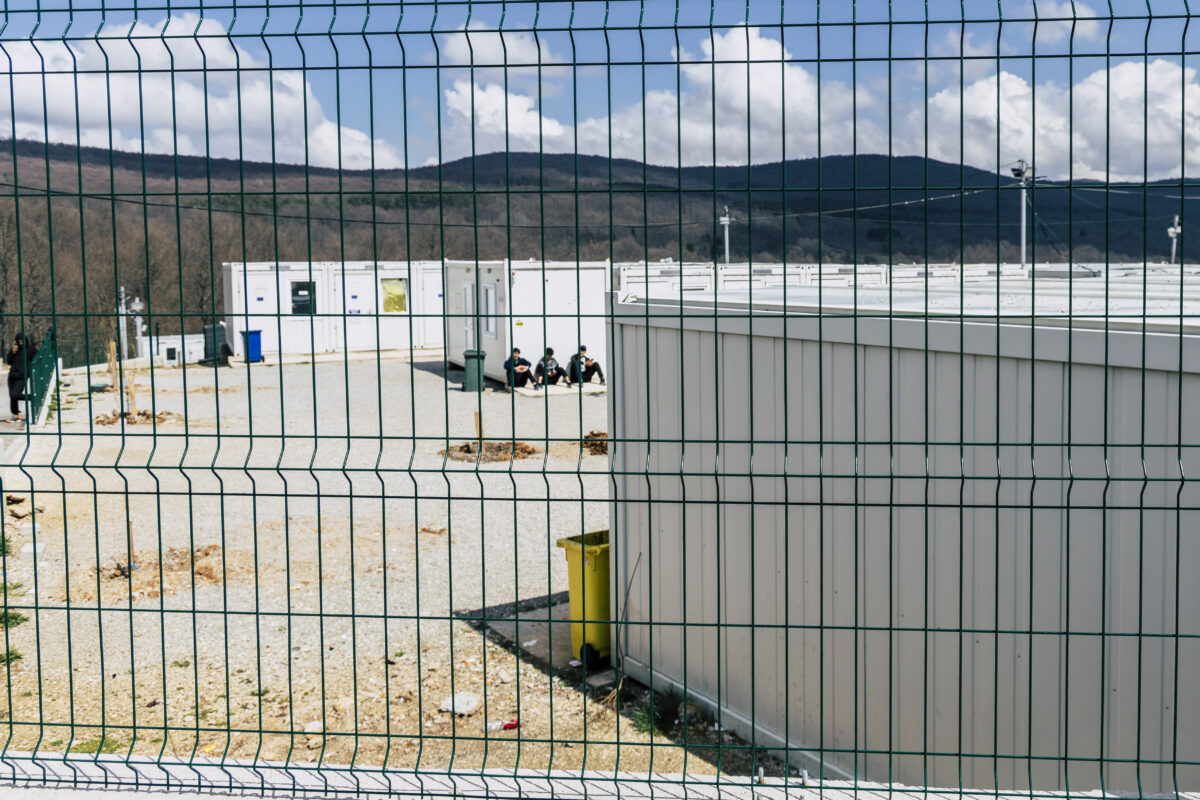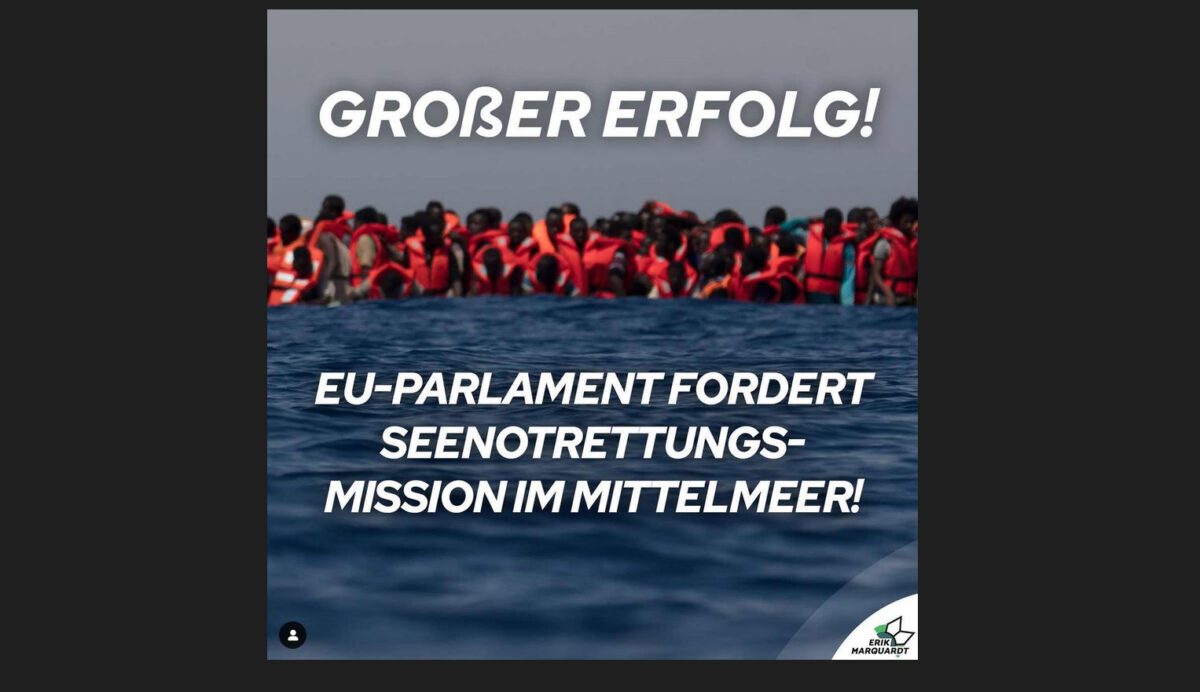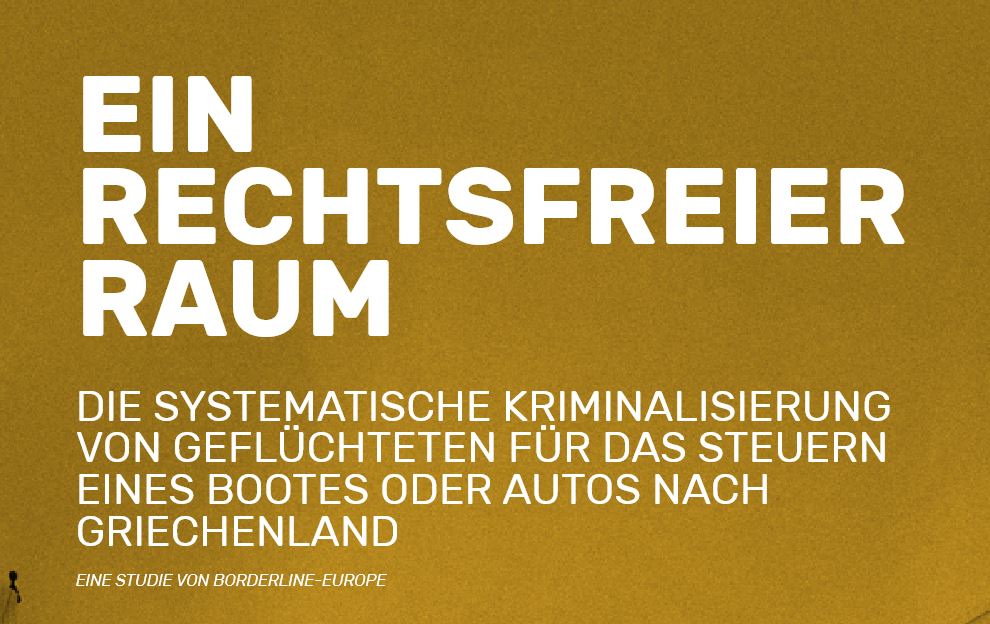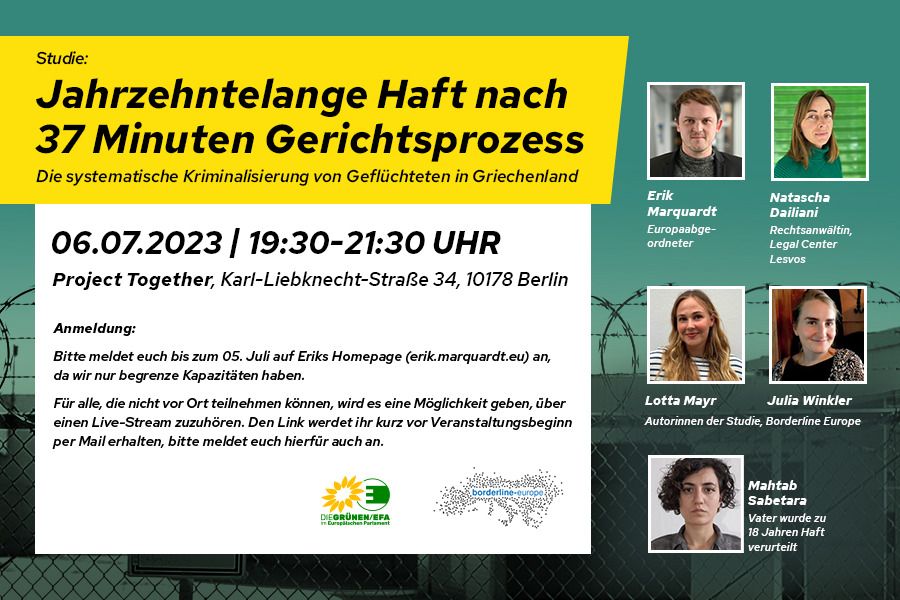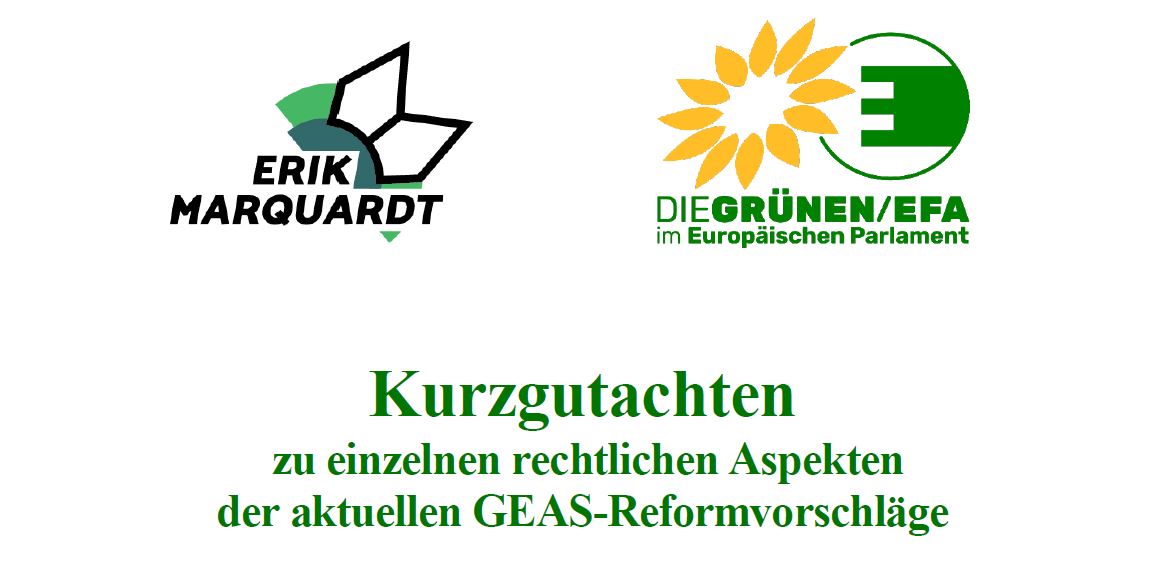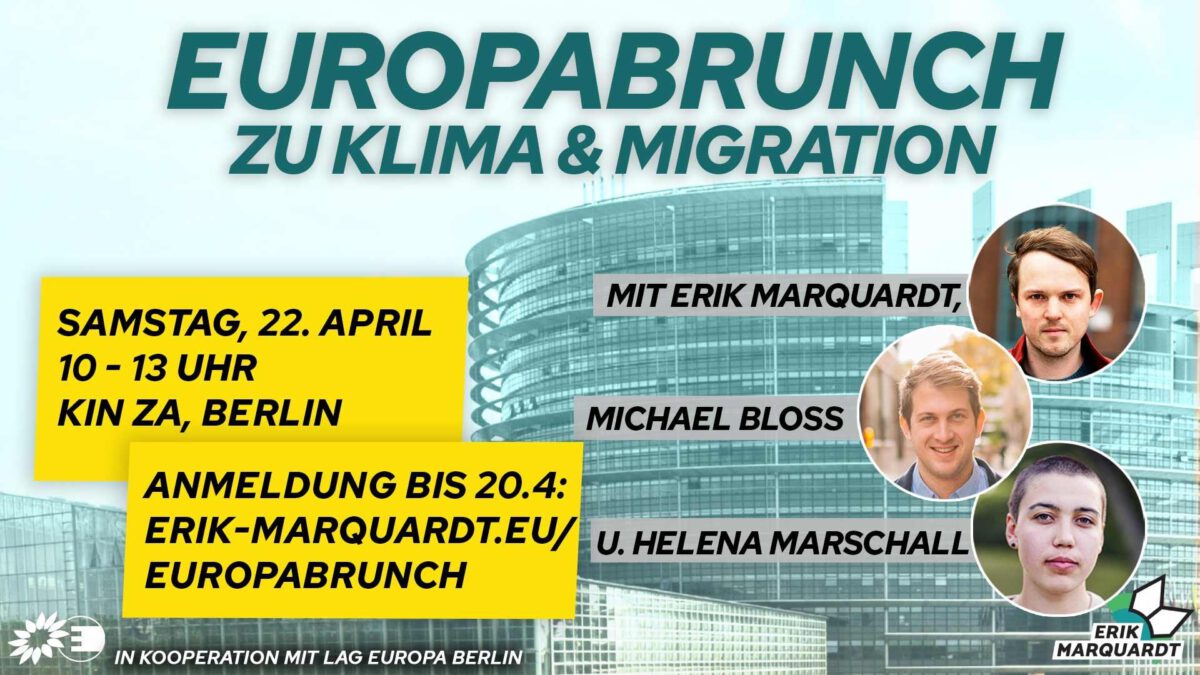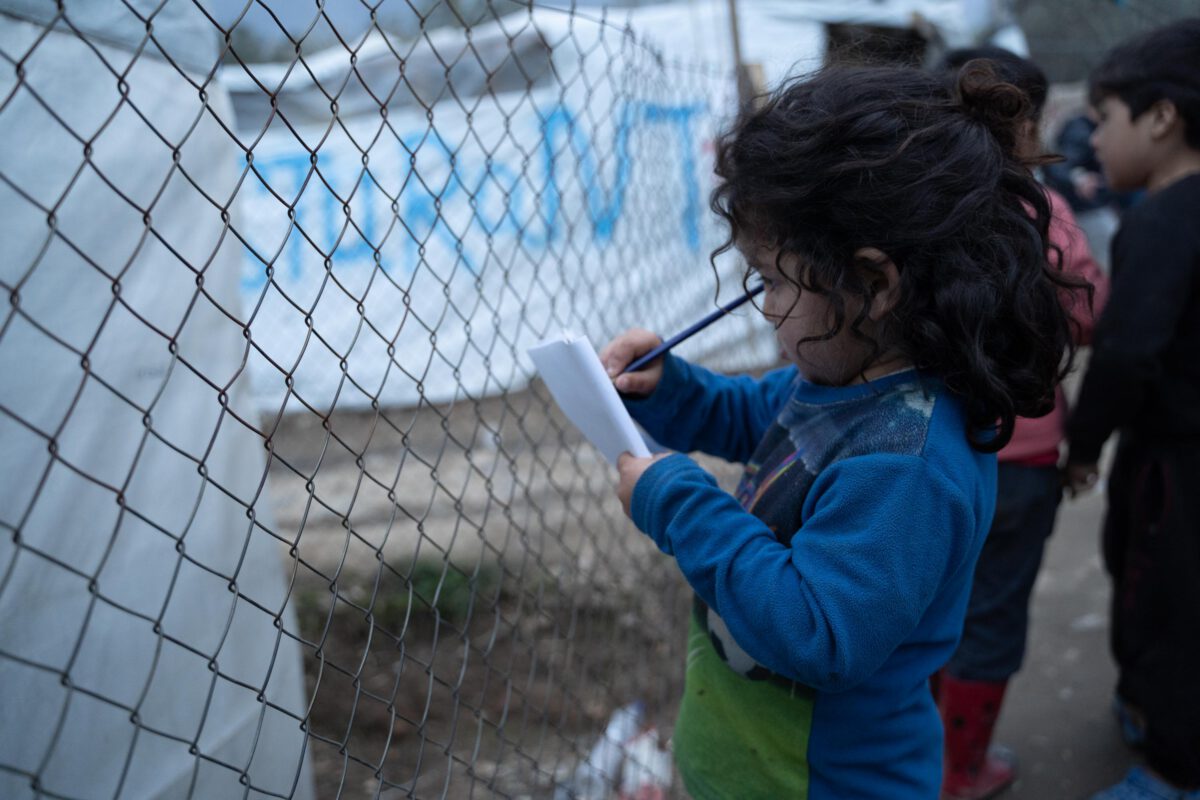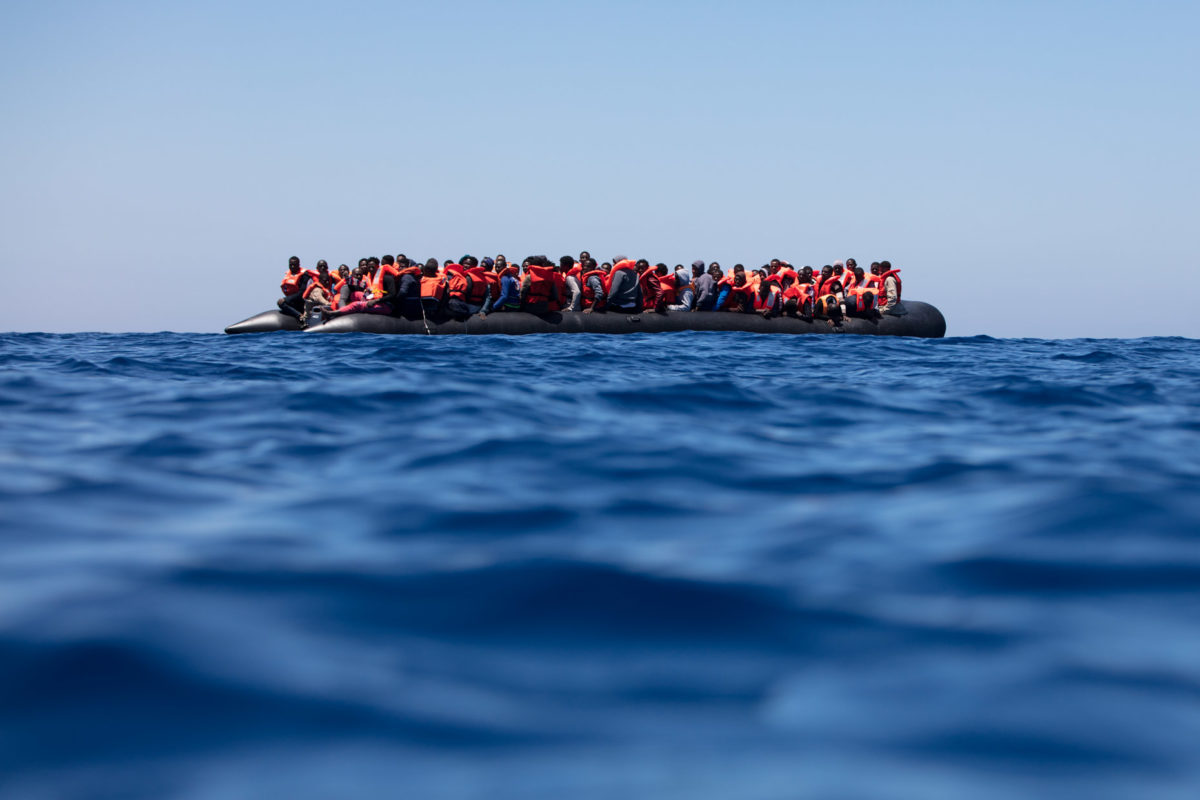Today, we members of the Interior Committee voted on the parliamentary positions on four dossiers of the Commission presented in September 2020. Migration and Asylum Pact off. All four were adopted in committee. Specifically, the European Parliament’s position on the screening regulation, the amended asylum procedure regulation, the regulation on asylum and migration management and the crisis regulation.
The negotiations have been protracted and have shown that the heated debate on migration issues makes it difficult to agree on solution-oriented positions. Unfortunately, there is no reason to believe that radical tightening of the asylum law will improve the situation for those seeking protection or for member states and municipalities. There is still a risk that the asylum reform will lead to excessive bureaucracy, processes that violate human rights, and more overburdened reception systems than the current system.
The creation of a common European asylum system was one of Ursula von der Leyen's central projects in her candidacy for Commission President in 2019. At the time, I supported this project. Assessment of the pact dispensed.
1 Regulation on Asylum and Migration Management (AMMR)
The Commission proposes in the Regulation on asylum and migration management before, the replace current Dublin system and introduce a new responsibility-sharing mechanism between member states. A The proposal focuses on increasing the number of returns. The central problem of the Dublin system is not to be solved Рthe country of first entry is to remain responsible for asylum procedures. For this regulation, rapporteur Thomas Tob̩ (EPP) has submitted his Draft report presented to the European Parliament's Committee on Internal Affairs (LIBE) in October last year.
The Parliament's position contains many positive elements and significant improvements compared to the Commission's proposal – and if implemented as proposed by Parliament, also significant improvements over the status quo.
After arrival and registration, it is determined which member state is responsible for processing the asylum application. There are new, additional criteria for this allocation, which are intended to relieve the states at the external borders. In addition, there is to be a mandatory solidarity system in which all states participate. The Commission has proposed various forms of solidarity. In the solidarity system in the parliamentary version, improvements will be made to ensure that resettlement, i.e. admission by another EU country, is considered a prioritized procedure.
This would be much more reliable and efficient than the ad hoc solidarity that has largely failed repeatedly in recent years. For us Greens, the demand of the parliament for an immediate redistribution of people rescued from distress at sea is a great success. This could help to end the cruel delay of sea rescue and port blockades. Overall, it can be assumed that the AMMR will not seriously solve the fundamental problems of the European asylum system, as it is unfortunately unrealistic after the experiences of the last years that EU states implement European, human or fundamental rights in asylum policy in such a way that one can assume a quick return to the rule of law. However, an implementation of the parliamentary proposal on AMMR would at least offer some practical improvements and would not have any disadvantages. Therefore, I voted in favor of it.
2. asylum procedure regulation (APR)
In 2016, the Commission issued a Proposal for the Asylum Procedure Regulation published and although the parliament in 2018. his report the member states were unable to reach an agreement. The changes presented in 2020 in the Asylum Procedure Regulation are now aiming to Require member states to use border procedures and to significantly expand the scope of the directive.
The core of the proposal is that a large part of the asylum seekers should remain at the border for the processing of the asylum applications in so-called border procedures. These border procedures are not asylum procedures in the true sense. This can lead, as in Moria, to mass camps at the external borders or to the creation of detention centers, as they have already been put into operation in Greece on the islands as pilot projects.
As rapporteur for boundary procedures I have an implementation report for the European Parliament. It becomes clear that border procedures severely restrict the fundamental and procedural rights of asylum seekers and that the intended goals are not achieved in most cases. The rapporteur for the Asylum Procedure Regulation, Fabienne Keller of the Liberals has expressed her position on the APR presented to the Interior Committee in October 2021. Together with the Social Democrats and the Left, we Greens clearly opposed mandatory border procedures at the beginning of the parliamentary deliberations.
While the Parliament’s position represents an improvement over the Commission’s proposal, it still contains elements that would massively worsen the situation of protection seekers. In particular, the application of a regulation on border procedures could lead to many people being processed at the external borders and sent back without adequate examination of their application. A current example from Germany of the problematic nature of such border procedures is the Case of 35-year-old Mohammad D.,who was deported from Frankfurt am Main to Iran, although it is actually not allowed to deport to Iran at the moment.
Moreover, it is simply not comprehensible how such a system would avoid overburdening external border states. The consequence of implementing the extension of border procedures and the introduction of additional procedures would therefore contribute to external border states turning away from the CEAS and presumably resorting to human rights violations and other deterrent measures again.
The position of the Parliament also contradicts the Charter of Fundamental Rights and the ECJ judgment in Gnandi case, as it does not provide for automatic suspensive effect for first-instance appeals. Specifically, there is a risk here that people will be deported to third countries before their negative asylum decision is reviewed by a court. This also entails the risk of violating the principle of non-refoulement. That is why I voted against the Asylum Procedure Regulation. It should be noted that much of the negotiating mandate vis-à-vis the Council stems from Parliament's position in 2018. At that time, we voted in favor of this position.
3. screening regulation
With the screening regulation the Commission would like to introduce an additional step for asylum seekers before they can access the asylum system. The screening process would require member states to conduct registration, health and security checks in a short procedure. In addition, according to the Commission's proposal, the decision at the end of the screening procedure should not be subject to legal challenge, which would encourage arbitrary and unfair treatment of protection seekers. With the border procedure described above in the Asylum Procedure Regulation, there would be a risk that protection seekers would be kept in a legal no-man's land for a long time and also remain locked up for a long time.
The Screening Regulation is the only dossier of the Pact that is part of the Schengen acquis but linked to the Common European Asylum System. The Parliament has been dealing with the dossier since the rapporteur Birgit Sippel from the S&D presented her Report presented to the Interior Committee in November 2021. The Council has adopted a position on screening and is ready to enter into inter-institutional negotiations.
Screening includes the proposal of a fundamental rights monitoring mechanism at the external border, which is very important to prevent the current systematic violations of the human rights of people fleeing.
Member States would be required to screen persons arriving at the external borders and also to identify particularly vulnerable persons among them in order to provide them with appropriate assistance.
Combined with a surveillance mechanism with a broad scope and high standards of independence, this procedure would lead to less chaos and fewer human rights violations, but also to greater security and the rule of law at the external borders. In addition, audits would take place to prevent potential dangers to refugees and to combat, for example, human trafficking and organized crime.
An effective screening system would help register protection seekers quickly, distribute them rapidly, and address current human rights violations such as pushbacks or enforced disappearances.
Parliament's position on screening is, on balance, an improvement over the Commission's original proposal and, if implemented as Parliament envisages, would lead to faster registration, shorter detentions, and better standards at the external borders. Moreover, in my view, the regulation would provide an important response to systematic crimes at the external borders. That is why I voted in favor, my group abstained.
4. crisis regulation
Thanks to the Temporary Admission Directive (so-called "mass influx directive" / TPD), we have an EU instrument that has largely proven its worth in admitting millions of Ukrainians:inside the EU since the Russian invasion of Ukraine. The Proposal of the Commission in the Regulation on the management of crisis situations and situations of force majeure Provides for the abolition of this very directive on temporary admissionwhich would cause massive complications in the current situation.
But this regulation is also problematic in other respects, because the Commission wants to use it to allow various deviations from the minimum standards in crisis situations, which would further undermine the right of asylum. In doing so, a Member State would have to ask the Commission to determine that such a crisis situation exists. When a crisis might exist is not further defined, but the introductory remarks mention the situation at the Turkish-Greek border in March 2020 as well as the Corona pandemic. Due to the unclear definition, there is a risk that member states could instrumentalize the regulation to curtail the right to asylum.
Since the rapporteur Juan Fernando López Aguilar (S&D). his position on the Crisis Regulation to the Home Affairs Committee in November 2021, many discussions took place to ensure a balance between measures to strengthen solidarity in crisis situations (a priority for us Greens) and exemptions from the rules of the EU asylum system in normal circumstances.
Thanks to the work of the progressive groups, there are some good elements in the Parliament's position: the mandatory redistribution of protection seekers in crisis situations, the maintenance of the TPD, a new system of rapid recognition (prima facie approach) for those arriving with clear protection needs (such as Syrians:ins in 2015-2016), and the central role for the Commission in the classification as a crisis situation.
However, the Parliament's position also established serious derogations from the rules, which allow for long detention at the external border in a crisis situation and further worsen the situation of asylum seekers. Although I see the positive elements, I abstained from voting because in my opinion the derogations are not a solution to the current situation at the EU's external borders, but make the problem worse.
